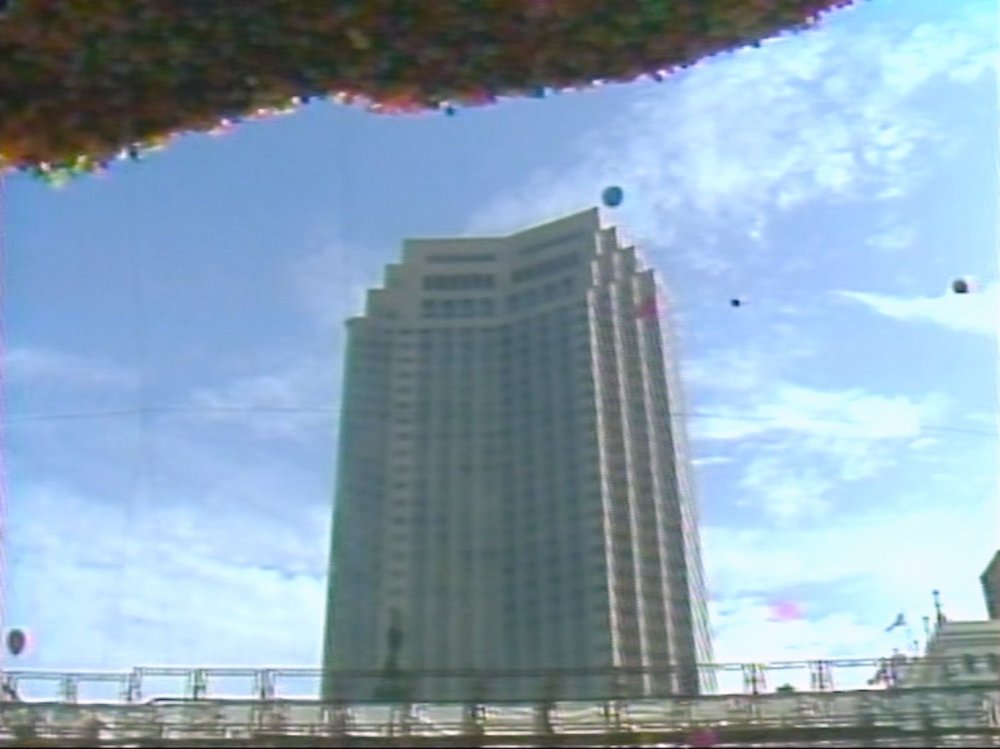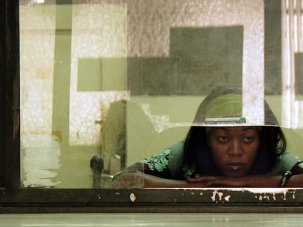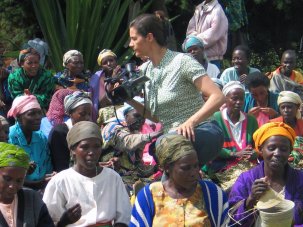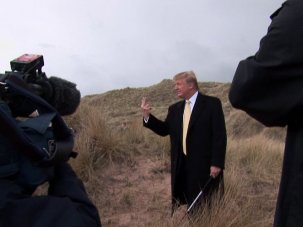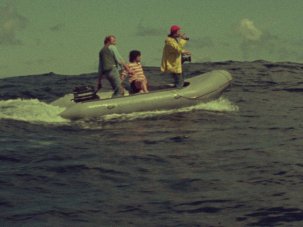Taking place in warm mid-September in New England’s midcoast region of Camden, Maine, CIFF – one of North America’s foremost nonfiction-specific forums, alongside the likes of Missouri’s True/False and Toronto’s Hot Docs – recently held its 12th edition, its first following a major structural shake-up.
12th Camden International Film Festival & Points North Forum
15-18 September 2016 | Camden, Rockport & Rockland, Maine, USA
Back in July, the team behind the festival established a new, year-round media project entitled Points North Institute which, like the well-known Sundance Institute, will include filmmaker retreats and residencies, workshops and fellowships. The festival itself is now also held under the banner of the Institute.
This ambitious expansion underscores the sense that these are fecund times for nonfiction film in general. Consider the recent relaunch of short-form visual journalism collective Field of Vision as its own entity separate from former parent site the Intercept; or the contemporary rise to prominence of form-bending practitioners like Joshua Oppenheimer, Sight & Sound contributor Robert Greene and Kirsten Johnson, all eloquent spokespeople on questions of ethics, access and the importance of artistic value and innovation in documentary filmmaking. (Greene’s Kate Plays Christine and Johnson’s Cameraperson, both of which had already opened to rave reviews in New York, were two of the best features on offer here: formally differing yet complementary studies of a filmmaker’s responsibility to their subjects.)
Also detectable these days, in the face of rapidly diversifying methods of production and consumption, is an increasing general awareness of the constructed nature of media itself, from news to reality television to, in the case of former Apprentice host Donald Trump’s bewildering presidential campaign, what amounts to a reality television spin-off. From Trump’s 3am rage-Tweeting sessions to his wildly dyspeptic public appearances, his campaign at times feels like it’s being directed by an evil satirical genius hell-bent on pummelling the so-called boundary between truth and fiction into a fine dust.
With events and screenings happening in three separate locations – Camden plus neighbouring coastal areas Rockport and Rockland – the festival offered up a rich four-day programme. Rather than stick with one specialism, I opted for a smörgåsbord approach, sampling features, shorts, panels and expert talks in roughly equal measure.
The most engrossing of the latter was an insightful chat between writer Eric Hynes and Ezra Edelman, director of the monumental seven-and-a-half hour documentary O.J.: Made in America. Edelman revealed that his film’s epic, though fully justified length was not initially planned upon; rather, he enjoyed the rare, unstinting financial and creative support of producers who were willing to let him take it as far and deep as he needed to go. (It was certainly worth it: I raced through Made in America in short order back in June, and I suspect it will be hard to beat as this year’s most profound narrative statement on the fraught intersection between race, class, geography and celebrity.)
Meanwhile, one of the most intriguing events was the Points North Pitch, in which six filmmaking teams had an intimidatingly strict seven-minute window to present their in-progress projects to a panel of 13 industry experts from companies including HBO, the Discovery Channel and UK distributor Dogwoof – the twist being that this happened in front of a live public audience at Camden’s lavish 302-seater opera house.
I was initially unsure of the conceit: was it really fair to put these palpably nervous young creatives through the emotional wringer for the entertainment of audience members and journalists like myself? As it happened, thanks both to the impressive quality and confidence of the pitchers and to the compassionate, constructive feedback of the panelists, the session was equal parts riveting and instructive. It offered a window into the nuts-and-bolts detail of the art of selling oneself to potentially interested parties (i.e. should you launch into your spiel first or show your trailer?), and general concerns for documentary funders. Recurring questions included: would this work better as a film or a TV series? How on earth would this kind of story secure international sales? How many hours have you shot, and at what point of your story will you decide on a story arc?
The Feeling of Being Watched trailer
The winning pitch was delivered by Algerian-American filmmaker-journalist Assia Boundaoui, whose germinal film The Feeling of Being Watched charts her discovery of, and subsequent investigation into, the fact that her Arab neighbourhood in Chicago’s south suburbs became the subject of the largest FBI terrorism investigation conducted before 9/11 – a blanket surveillance operation which carried the absurdly emotive moniker ‘Operation Vulgar Betrayal’. Boundaoui won a $10,000 post-production fund from a local studio, but all of the participating filmmakers I spoke to casually expressed positive sentiments about an experience that was mercifully far removed from, say, the cutthroat world of The Apprentice.
Speaking (once more) of Donald Trump, I discovered in the lead-up to the festival that Maine has its own version of the Queens-born, would-be demagogue: state governor Paul LePage, who in January was widely lambasted for making some baroquely racist comments at a town hall meeting. (“[These drug] traffickers with the name D-Money, Smoothie, Shifty… they come [to Maine] from Connecticut and New York… incidentally, half the time they impregnate a young white girl before they leave, which is real sad because then we’ve got another issue that we’ve got to deal with down the road.”)
I can confirm, however, that the sizeable local Camden audiences – who skewed overwhelmingly in the 60-plus, white, liberal and middle-class demographic – were nothing but friendly. I found myself in many a long, snaking queue chatting with regular festival attendees who expressed genuine pride at its gradual growth in stature, and their own community of avid doc-watchers. (In addition to a vast network of sponsors, including Showtime Documentary Films and the National Endowment for the Arts, CIFF leans for funding on a long list of individual donors, many of whom are benevolent locals.)
If any one moment during my time in Camden reflected the depth of the local passion for nonfiction film, it was being present to see crowds surging into the Opera House at 10am on Friday to watch a shorts programme. The positive energy was rather sucked from the room by the powerful opening film: Field of Vision’s Speaking Is Difficult (directed by A.J. Schnack), an austere treatment of America’s mass shooting crisis, in which placid exterior images of the areas where these events have occurred are sequenced in reverse chronological order, and overlaid with archival audio (emergency phone calls, panicked screams, sometimes – unbearably – gunshots). With its cool approach to an emotive subject and implacable procession of horror, Speaking Is Difficult reminded me of Alan Clarke’s abstract Elephant (1989).
The mood was lifted, to an extent, by Nathan Truesdell’s Balloonfest, a six-minute archival record of Cleveland’s shambolic 1986 attempt to rid itself of the name ‘The Mistake by the Lake’ with a stunt: to set a world record by releasing almost one-and-a-half million balloons. What begins as a hysterically funny cavalcade of local pluck and bad 80s fashion transforms into haunting meditation on the dangers of hubris, as the balloon release goes wrong with dreadful consequences.
Strangely, this unassuming short stuck with me more than any other film I saw, perhaps for its deadpan presentation of ridiculous, chaotic tragedy emerging from such positive intentions. That over 200 people appeared similarly enraptured by its minimalistic charms suggests that CIFF, and the wider Points North Institute, has just the appreciative base it needs to be a hotspot for further growth in interesting and challenging nonfiction filmmaking.
-
The Digital Edition and Archive quick link
Log in here to your digital edition and archive subscription, take a look at the packages on offer and buy a subscription.




